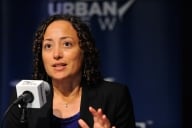You have /5 articles left.
Sign up for a free account or log in.
Bethune-Cookman University violated standards of academic freedom and due process -- and the institution's own procedures -- in dismissing seven faculty members, according to a report released Friday by the American Association of University Professors.
The ostensible reasons for the dismissals vary, and include allegations of sexual harassment, failure to have an appropriate degree, and the need for the university to save money. The professors affected include some with tenure and some who had taught for many years without tenure. In theory, the various reasons cited by Bethune-Cookman could be legitimate reasons for a college to take action against faculty members, even those with tenure. But the AAUP investigation found two patterns across the various cases: a lack of due process and an apparent correlation between opposing the senior administration (in particular, the president, Trudie Kibbe Reed) and losing a job.
Consider the cases involving sexual harassment allegations (which covered four of the professors). While the four faculty members were dismissed, they were never given (despite requests consistent with the university's requirements) any details about the accusations, including who made them and what was alleged, the association found. Further, its report said that hearings were not held in ways consistent with the faculty handbook. The university told the association that the allegations were made on the basis of student surveys -- and that since they weren't based on a specific student complaint, normal due process rights weren't necessary. (The AAUP rejected that logic, suggesting that if faculty members are going to lose their jobs, due process is needed.)
Similar procedural issues were raised about other dismissals. For instance, the faculty member deemed not to have enough graduate credit had provided the university with evidence that he did have the credit, and the faculty members who lost their jobs due to financial difficulties were dismissed without the university declaring "financial exigency," typically a requirement for such dismissals.
Further, the association found that shortly after ending the employment of those professors, the university created new positions that were quite similar to the ones held by the professors, and didn't offer them their jobs back -- again suggesting a reason other than financial crisis for getting rid of these faculty members.
Based on interviews conducted at the college, the association found a broad problem related to faculty-administrative relations beyond the dismissals.
"A pervasive atmosphere currently exists at Bethune-Cookman University in which the administration supports favorites and ignores or punishes those who fall out of favor or who question, contend or appeal," the report says. "No adequate mechanism or procedure exists for the impartial or balanced hearing of grievances. In instances critical to the protection of academic freedom and tenure, the university has no published procedures, and where it does, the administration has often failed to follow them.... The resulting climate of doubt leaves faculty members wondering which claims or rumors to believe and what might happen to them if they are not careful."
A response to the report from a lawyer for Bethune-Cookman said that the association was "clearly predisposed to cast Dr. Reed in a negative light," and added that the association had relied too much on the allegations of professors who lost their jobs. Further, the lawyer's statement said, the association had failed to consider evidence that showed the president's "commitment to faculty governance, integrity and accountability."








